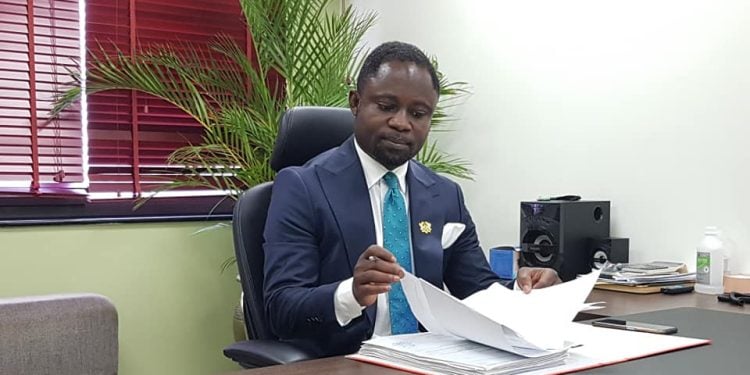Ghana’s government is taking significant steps to abolish processing fees for blood transfusions, aiming to eliminate financial barriers and ensure free and accessible blood for all citizens, particularly the vulnerable. This initiative, championed by Health Minister Kwabena Mintah Akandoh, falls under the umbrella of the “Mahama Cares” policy framework and awaits parliamentary approval. The move is designed to address the recognized impediment that processing costs pose to blood availability nationwide. By subsidizing and potentially eliminating these fees, the government hopes to alleviate the financial burden on patients requiring blood transfusions. This action underscores a commitment to enhancing healthcare accessibility and affordability for all Ghanaians.
The proposed policy was unveiled during the national celebration of World Blood Donor Day in Accra, an event themed “Give blood, give hope: Together we save lives.” The commemoration served as a platform to acknowledge the altruism of voluntary blood donors, with dignitaries such as the Queenmother of Mankessim Traditional Area, Dr. Nana Ama Amissah III, in attendance. The event also recognized the contributions of various religious bodies and institutions actively involved in supporting blood donation drives, highlighting the collaborative effort needed to ensure a robust blood supply. The Minister used the occasion to encourage organizations and institutions to organize blood donation exercises at least twice a year, emphasizing the critical role of consistent blood donation in maintaining adequate national blood reserves.
Recognizing the importance of youth engagement in blood donation, Minister Akandoh extended a specific call to action to young people, urging them to participate in this life-saving endeavor. He also acknowledged the invaluable contributions of regular blood donors, praising their commitment to providing this vital resource. Furthermore, the Minister reiterated the government’s commitment to supporting the National Blood Service through the National Health Insurance Formula, encouraging the service to apply for its allocated resources under the 2025 formula. This commitment demonstrates the government’s intent to provide sustainable funding for blood collection and processing services.
Dr. Shirley Owusu-Ofori, Chief Executive Officer of the National Blood Service (NBS), provided an update on the national blood collection efforts. She reported that 187,000 units of blood were collected in the previous year, with over 45,000 units processed into life-saving components. While these figures reflect substantial progress, Dr. Owusu-Ofori underscored the persistent logistical challenges hindering blood collection, particularly the shortage of mobile blood vans, crucial for reaching potential voluntary donors in remote areas. Addressing these logistical bottlenecks is vital for expanding the reach of blood donation services and ensuring a more consistent and reliable supply of blood nationwide.
The NBS, under Dr. Owusu-Ofori’s leadership, is proactively working to enhance the accessibility of blood services across the country. This includes plans to establish new regional centres and redesignate zonal blood centres to optimize the distribution network and ensure that blood and blood products can reach those who need them efficiently. These strategic infrastructural developments are designed to streamline the blood supply chain and ensure equitable access to life-saving blood transfusions across all regions of Ghana.
The World Health Organization (WHO) has also recognized and commended Ghana’s progress in increasing blood donations. Dr. Fiona Braka, WHO Ghana Country Representative, acknowledged the strides made by Ghana but also emphasized the need for further improvement. While Ghana currently records 30 voluntary donations per 1,000 people, this falls short of the Africa region’s target of 80% voluntary donations. Bridging this gap remains a key priority, and Dr. Braka’s comments underscore the ongoing need to strengthen voluntary blood donation programs and further raise awareness about the importance of donating blood. The proposed elimination of blood processing fees is anticipated to significantly contribute to this goal, potentially acting as a catalyst for increased voluntary donations. This policy shift is expected to be transformative for Ghana’s healthcare system, promoting greater equity in healthcare delivery while fostering a culture of voluntary blood donation, ultimately saving countless lives.


